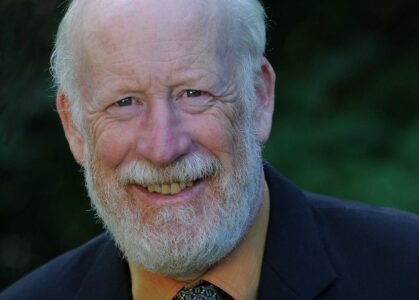The Crimean Crisis, Immigrants in Canada, Rape Culture, and Canada’s Afghan Mission failures: Can these dots be connected?
Crimea
Knock knock. Who’s there? Crimea. Crimea who? Crimea a river. Click. (phone is hung up.) Putin is knocking on Obama’s door… This was a Facebaook cartoon posted March 4.
Clever joke. For me it says enough. Who told the USA it is the champion of global rights and the law of international politics? It seems to think that role belongs to it, as it once seemed to the British Empire that it owned some God-given right to set the world in order with the Royal Navy in the nineteenth century. America and its huge navy, air force, and the marine corps, continue the great work of bringing a very specific, self-interested view of international law and order to the world. If you swallow their perspectives, you will be cheering some kind of military response to the Russians’ actions. If you do, you are fool. In my humble opinion…
Russia is a very powerful state even in this day of post-Soviet imperial collapse. It acts like a great power always does: “The strong do what they will; the weak do what they must.” (a fifth-centure BCE Greek historian wrote this.) Russia is doing what it must for its power. It needs to ensure that near to its borders it has sufficient control to stop threats to its “national interests.” The USA has projected its borders all over the world, so it intervenes in Viet Nam, Iraq, Afghanistan and Latin America pretty much without worrying what the rest of the world says is right. Russia will not let the Crimea belong to Ukraine by an accident of very-recent history. Near the end of his life, Joe Stalin latched Crimea to the Soviet Socialist Republic of Ukraine. Now the Ukraine is not a Soviet Republic. Putin will not let it go with Crimea attached. Simple as that. And the West and NATO can lump it. Andrew Coyne is way off-base in his assertion that NATO must stop Putin.
Immigrants and University success in Canada
This is something we all know without talking much about it. Immigrants to our country have a more powerful urge succeed materially than Canadians born here. The high motivation toward financial and economic success among Chinese, and of women from other Asian nations, is now well-documented. Amy Chua, author of Battle Hymn of the Tiger Mother, is now notorious for her study of immigrant success in the USA and Canada. She asserts that these immigrants from Asia are succeeding in the economy due to a sense of collective superiority, personal individual feelings of anxiety, and “the ability to control their impulses” which they learn in their parental culture. Canadians born here lack the drive for material success, and hence far fewer of them will seek a university degree regardless of the fact that a degree will significantly increase their odds of success.
Why did British colonists create Canada? For the Mother Country the motive was wealth and power, but for those who came here and worked extremely hard to turn Canada into a facsimile of England and Scotland and Ireland, the motive was simply – “a better life” than they could expect at home as lower-class British subjects. This was indeed a Land of Opportunity.
When did we later-generation Canadians lose the will to materialist triumphs that our forefathers and foremothers so obviously had in spades? Why do we not care so much about getting ahead? I am one who has lost the materialist drive for success. My university education has enriched my life, but I did not do the “right degree” – in science, engineering, medicine, technology or business, for example. I chose history. I am content with my choice. Now I look on the strivers after success and shake my head: they are misguided, I think. Earth needs fewer of that kind of mind in this hour of human peril.
Our own culture (my part of the culture) now has a significant number of people rejecting materialism and capitalism because it has made our Earth a perilous habitat for us and for other living things. This cultural transformation began in the 1960s. It has not touched Asia. There, people are more like the lower classes of European nations in the 19th and early 20th centuries – they are looking to get out of their native lands and move to Canada where they will make progress by hard work and family unity.
Canada now has two cultures when it comes to attending university and imagining the Canadian Dream: one held by recent immigrants, and one held by the young people who are born here to Euro-Canadian ancestors. The latter are not “status-strivers”, not so materialistic as the former, and yet present government policies of Canada tend to help new immigrants and English-as-a-second language students with support programs. What this means for the Canadian mosaic of ethnic equality is not clear yet. It seems to indicate a changing of the elite in our country, from European to Asian upper-middle-class rule.
“Rape Culture”
Straight up, what I am saying here is not a denial that sexual assault is a major issue. It is. I only want to begin with a comment that this phrase, “rape culture on campus,” is really intellectual laziness and an abuse of clear speech. “Culture” should surely mean more than a set of attitudes among some young university-educated people about sexual consent and freedom.
Having said that, I do not dispute that men forcing sex upon women is a serious issue. Refer to my column four weeks ago, on the relations between men and women. I am aware and sensitive to the issues of male sexual aggression and the difference between male and female sexual desire and satisfaction that are at the root of the issues.
Men will change. They will learn to accept women’s sexuality on its own terms, and not resort to violence and drugged consent to get sex. Men will learn to “get sex” by consent or by purchase and no other way. Women will be the teachers. Men who are sensitive to the outrages by their gender against women will be allies of women, politically and in the sphere of changing attitudes.
Women are crucially in the drivers’ seat, to change our world in the sphere of sexual relations. Men have had the dominant position under patriarchy — and abused the power. Now the onus to combat male assumptions of entitlement to sex from women must be on women. They are clearly showing themselves willing to fight for their right to be free from fear. I am an ally.
The End of the Afghan Mission
As we enter 2014 and the public mind is soon to be subjected to commemoration of the start of World War One – “the Great War” as it was labeled in the British Empire – Canadians need to take stock of what we did in Afghanistan between 2001 and 2012. Was that a “good war” for us to fight and lose soldiers in, a good way for us to make the world better by killing some Afghanis and standing beside our NATO allies to bring “law and order” to a land so very alien to Canada?
“All conversation about ‘civilization’ is conjugated in this manner: ‘I am civilized; you have a culture; he is a barbarian.” I like this epigram by historian F. Fernandez-Armesto.
I am convinced that at the very deepest root of the actions of the Americans and the British when they go into foreign lands to set things in order, is their conviction that they are civilized powers and the people who they are “helping” are less civilized. “We come in peace, with our weapons. We come to make your land a better place. We come with the approval of ‘the international community of nations’ and by the norms of ‘international law’ as expressed in the United Nations.” So speak the imperialists of all times since the Sumerians and Egyptians invented urban civilization.
Canada had never, ever, not once, sent its armed forces across the world in any mission like the one we joined in 2001 at the insistence of the USA that we were obligated to invade Afghanistan by the terms of our alliance with America and Europe in NATO.
Now we have an imperial war in our tradition. We have fought in a land far from us, where the people posed no danger to our country, for purposes that are not the intent of most Canadians. The justifications are manifestly false; we did not alter Afghanistan by our violence there to become more like Canada, despite the rhetoric surrounding “democracy” and “a free and prosperous economy” and the “rights of women.” Whenever that kind of language is spoken, the true interest of the invader is veiled. We went there because the USA and the UK and other European nations’ governments demanded it, and Canada’s alliances would suffer if we did not go along with them. But it is the ruling class who makes the policy, not the majority of people.
And that is why we must not celebrate the beginning of WWI either. That was a war for the ruling classes of the West to keep their hegemony, for the British and French empires, and America, to maintain their grasp on the global economy. America emerged more powerful than ever in 1918, and Britain and France added more territories to their empires. Canada bled for no good cause in that war. But the families of dead soldiers demand a “meaningful death” for the “sacrifice” of their sons, and so a majority of Canadians have accepted the mythology of WWI as a war to defend our “freedoms.” That is pure propaganda, and a distortion of history amounting to a pack of lies.
Not one Canadian constitutional freedom was ever won by fighting Germany. All our freedoms – to vote, to have a free media, free choice of religion, freedom of assembly and the right to organize unions etc. etc. – were won by Canadians against the ruling elites since the 18th century.
Repeat after me: Canada did not win its legal freedoms by fighting Germany, ever. We were not about to lose our freedom if we did not fight. Our wars in the 20th C. were not “liberation” wars.
Conclusions: Consciousness and Quebec sovereignty
There is no obvious link of all these issues except that they are all human political and cultural questions. I think humans are changing, and so the issues may look very like issues that have been with us over the centuries – but they will be different because we are different. And the main reason for our difference from past humans is our technologies of information. They not only inform us – all the array of media and devices to bring data to our minds through screens and audio methods – they form us.
A new human walks the earth today — a human whose consciousness is surrendered to electronic assistance. We are altering our consciousness, we are losing the capacity for memory, we are living in virtual realities and becoming enfeebled at dealing with physical reality, such as person-to-person, face-to-face social interaction.
In such a new human condition, the survival of Canada as a single, unified nation-state seems to me of decidedly less global significance. If the people of Quebec, whom we in our wisdom have deemed a “nation” called “Quebecois” by a Parliamentary resolution, choose to have a “sovereign nation” independent of Canada – how important is that, really? No more than Ukraine’s status matters really to us.
I am attached to the quality of life I have enjoyed in Canada as it is, with Quebec as part of it. I would wish it for my children’s children. But Canada is not especially protected against change. It can evolve, and lose parts. I t can become more enmeshed and absorbed by the year into its mighty American neighbor, and it has been doing so all my life. That is not a tragedy.
The tragedy of humanity today is much more profound than what Canadians, among the most fortunate people on the planet, do or do not do to maintain a united distinct nation-state. What we are doing to our planet, to its many species of life, and to ourselves and our minds, is exponentially more important in the cosmic scheme.
So, Canadians, take a chill break before reacting to any of the many news stories about Quebec that we will be drowned in for the next little while.
Charles Jeanes is a Nelson-based writer. The most recent edition of Arc Of The Cognizant can be found here.


























